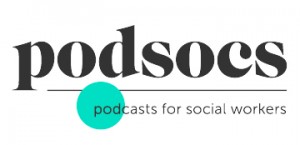I am not an economics expert by any definition but I do know that economies cannot be run like household budgets. Spending is a matter of priorities (including long term benefits) not necessarily cutting social services that cannot fund themselves.
It is very clear that some social responsibilities like education and health, if run for everybody in society do not make money. Consequently, when these services (that are basic universal human rights) are expected to pay for themselves, they will fail and poorer outcomes for society as a whole are the inevitable outcome. Instead of achieving what these services are intended to do, the goals become financial and ‘staying within budget” rather than say optimising health or providing the best possible education. If you don’t spend money on programs designed to help people with complex issues, find work or provide income support for people to survive, it is not just those people who will suffer. Social problems of all kinds will get worse. Increases in crime rates are inevitable not to mention poorer health outcomes and a less educated society. On one hand politicians blame and punish people who cannot find work, while on the other industries are closing down, robot technology is reducing the numbers of jobs, jobs are sent offshore, services for getting people into work are cut, and older people are forced to work longer. The health and well-being of society is closely linked to social inclusion, access to education, health and work, and feelings of security (and I don’t mean boarder security!) not to where the free-market is left to determine all things in society.
Nor is everything black and white. It is not tax payers vs users of health services – they are not mutually exclusive. Nor are all the other dichotomies constructed by politicians. The reality is most social welfare spending benefits the highest income users in Australian society including our politicians. The ‘welfare’ demonised by some politicians is a very small proportion of social spending. In my view, access to education and health helps everyone in society. For these reasons, I think these services (and they are services not an optional extra) should be the same and free for all (yes I know a Utopian fantasy – but we did have it once). In my opinion, no public funding should go into any private health or education system (yes I can hear those screams). Society does need to pay for those things that make all of society better via a truly fair tax system. There some basics we should just expect. The rest of world is heading towards developing education and health for all while Australia, the UK and the US are going in the opposite direction increasingly limiting them to people who can pay. Who will be better off in the long run? Maybe none of us because the ideology-driven individuals who blindly believe the free market is the answer to absolutely everything, also don’t believe in climate change or science and probably support the teaching of creationism in schools too.
So in my view, it comes down to what we value in society and what sort of society we want to live in. An equal society has an unavoidable cost that can only be shared fairly in society. Leave to the market what belongs in the market – people deserve better.
Written By Patricia Fronek
Leave to the market what belongs in the market was originally published @ Social Work, Social Work and has been syndicated with permission.
Sources:
Our authors want to hear from you! Click to leave a comment
Related Posts





Excellent argument for “leaving the market to the market” … with respect to social justice and social services. While not an “economics expert” either, my undergrad major was economics and my interest was “Modern Public Finance” i.e., what belongs to the market and what belongs to government. Milton Friedman and Friedrich Hayek, both Nobel Prize Winning economists and colleagues from the University of Chicago, have transformed the world in contrast and opposition to, for example, John Rawls (1971) “A theory of Justice.” My interest is in public education and the “privatization” of education and the effects on “at-risk” students. The economic debates are the same as I witnessed this while providing education services in Acute psychiatric facilities: link.springer.com/content/pdf/10.1007%2F978-94-007-6555-9_38.pdf